'If you think you need a television in your room, you are in the wrong place': Why sleeping under canvas makes for a complete safari experience
A tented safari will surprise even the most seasoned traveller, says Mark Hedges, and nowhere more so than in Botswana, where the rhythms of life seem supercharged.

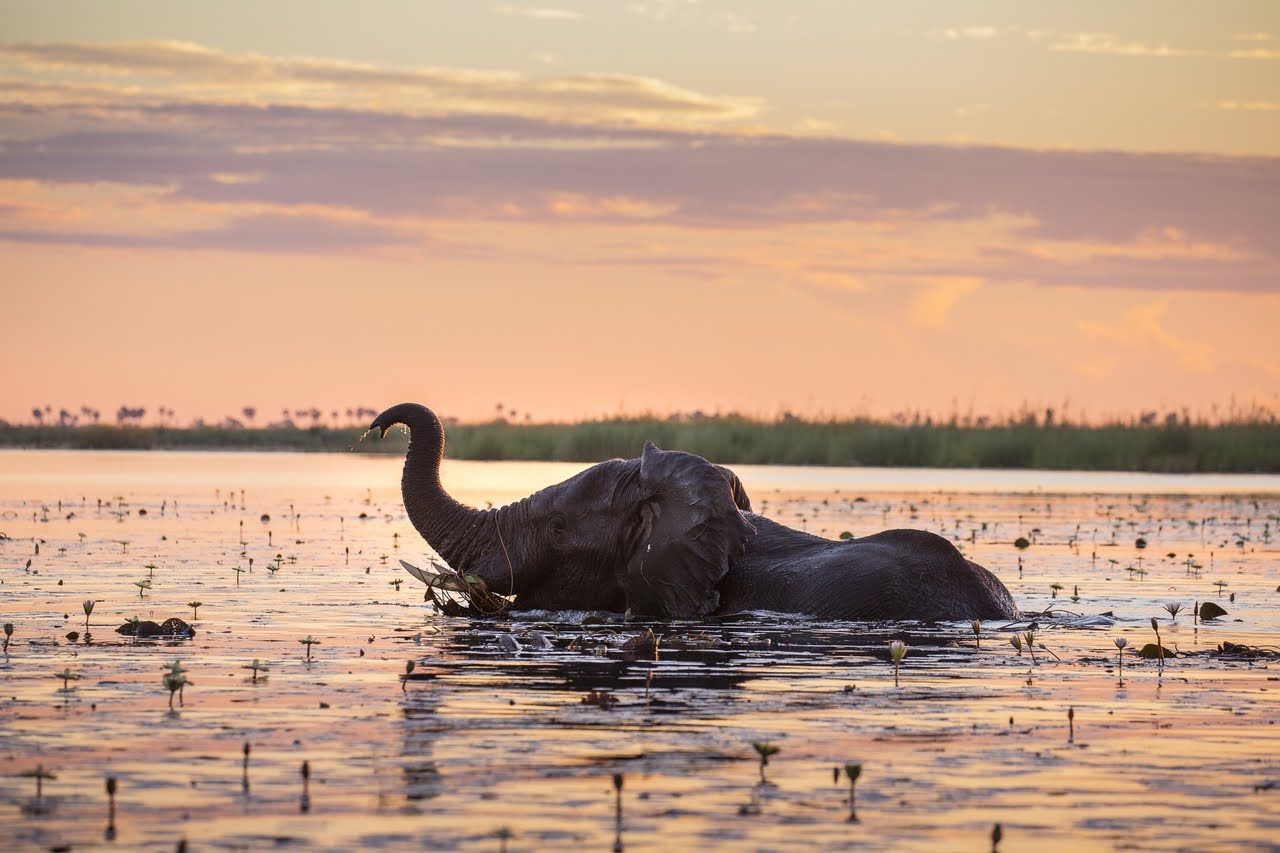
The Okavango River, the fourth largest in Africa, is a wonder of the world. Rising in Angola, it runs for 1,000 miles into the Delta of the same name before disappearing beneath the Kalahari desert. It never reaches the sea.
The river fills the Okavango Delta in Botswana at a critical period of the year, when the area would otherwise be dry, and this makes it a unique area for wildlife — the perfect destination for a safari.
For our trip, we opted to sleep entirely under canvas, which makes for a complete safari experience in a way that being cocooned behind bricks and mortar can never match. Tents make you a part of Nature. If you think you need a television in your room, you are in the wrong place. TIA: This Is Africa. Let the canvas surround you and the country will do the rest.
Mokete Camp
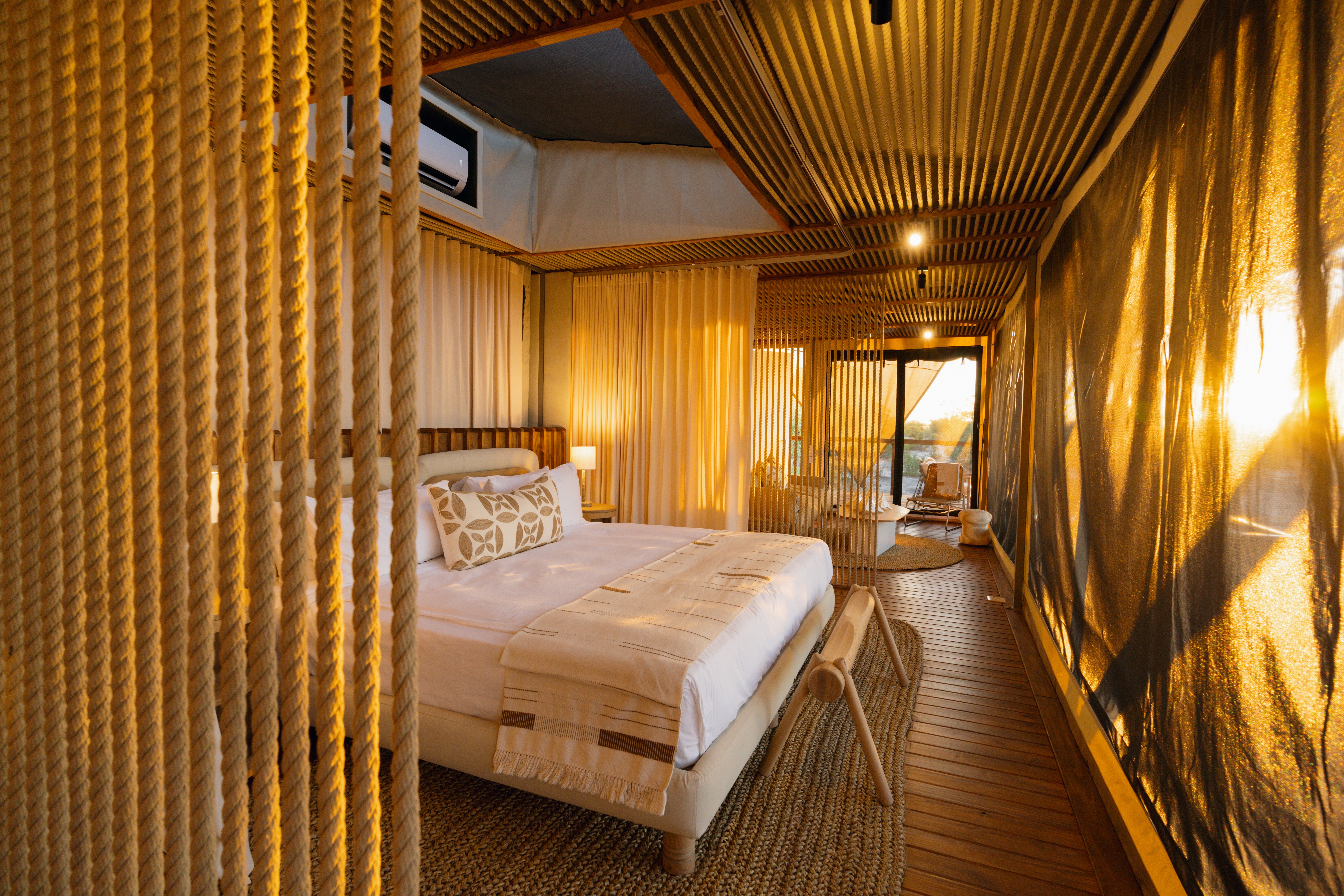
As the helicopter swept lower across the vast, green marsh, Rachel and I saw our first few elephants. And then a herd, and then dozens of pachyderm families. Here was somewhere special.
As we touched down, brimming with excitement, the staff sang to greet us. Mokete Camp consists of a series of tented rooms on the edge of mopani woodlands looking towards the great elephant-clad plain where, incongruously, a single solitary tree stands. At night, the roof of our canvas tent was peeled back so that we could stare and wonder at the infinity of stars to the tune of the hyenas’ whoop and the lions’ roar — with nightjars on backing vocals. We weren’t on safari, we were part of it. We had been consumed by Africa.
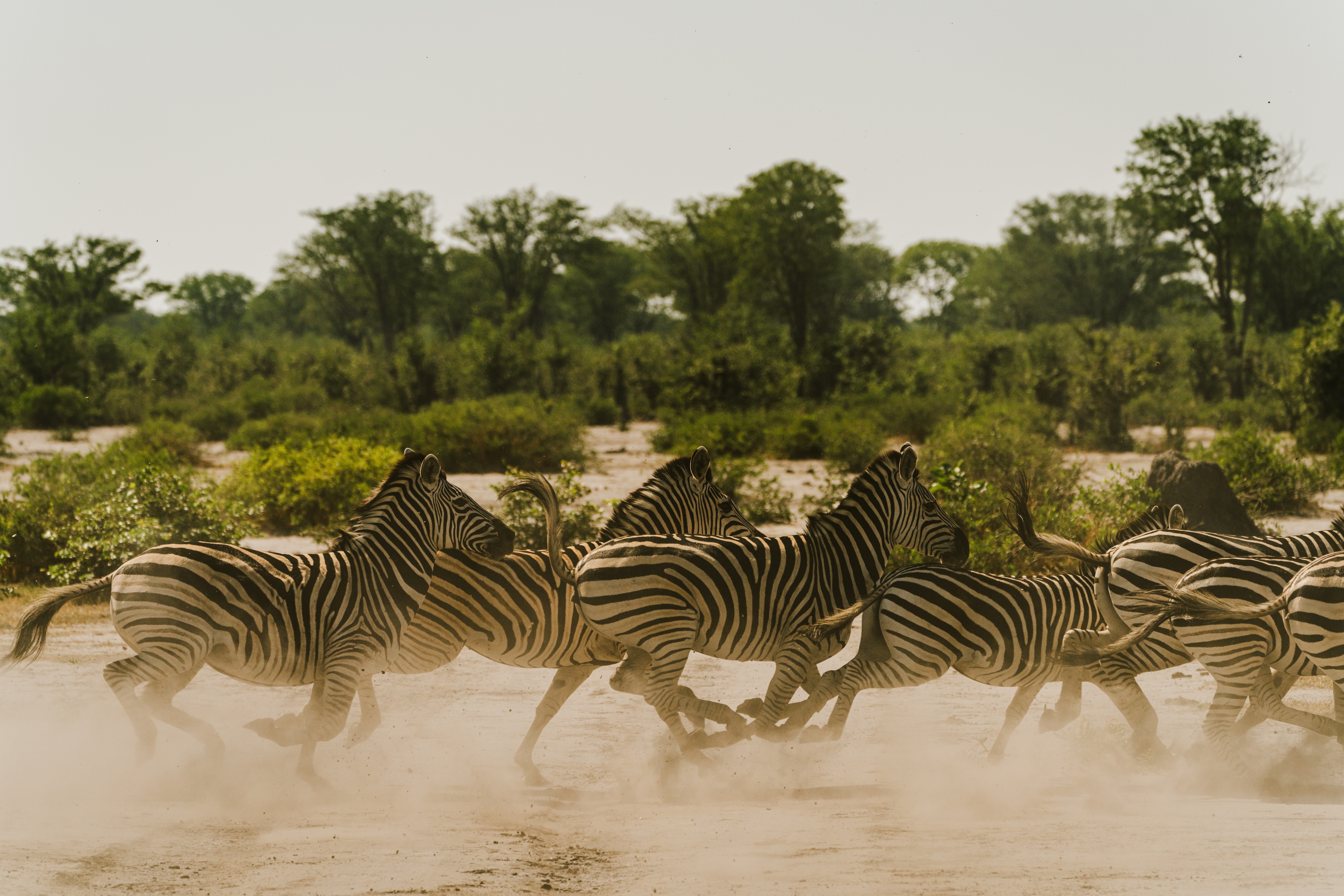
October is the end of the dry season. Dust devils spun in the heat as the vast herds of herbivores made their way to drink from the river in the marsh. Water is life and death and animals perform a daily dance between the two.
The area supports some 5,000 buffalo, confusions of wildebeest in every direction, thousands of elephants, warthogs and antelope of every hue. In one 360-degree spin, I counted nine different species. There are three prides of lion in the concession: one hunts young elephants; the biggest numbers 21 and had recently killed nine buffalo in 90 minutes; the third is based at the camp. Mokete is heavy-metal game viewing.
Exquisite houses, the beauty of Nature, and how to get the most from your life, straight to your inbox.
At sunset, spellbound, we watched wild dogs wake, hunt and kill a tsebebe. It was beautiful and horrific. Then hyenas arrived from the shadows, but were beaten off by the dogs. We watched the same wild dogs chase a cheetah up a tree: Africa’s two rarest predators in one go. The following day we saw the cheetah—its brother killed by lions earlier in the year—bring down a warthog. This is no ordinary safari.
At this time of year, a number of elephants die due to heat stroke, so there was plenty of food for the carnivores, the undertaker-resembling marabou storks and the vultures. Beside one corpse, we found a lioness with four cubs, two of her own and two of her sister’s. A hyena skulked in the shadows ready to grab a cub. At Mokete, the crash, bang, wallop of life is at its most pulsating.
In summary
The camp, which opened in April 2024, is a 45-minute helicopter ride from Maun (the only way to get there). Raw and remote, yet so abundant with life, it is one of Africa’s last truly wild sanctuaries. There is nowhere like it. It takes only 18 guests and has a water hole in the middle of it all — as well as a plunge pool for human guests.
Star rating
Brutally beautiful.
From $1,150 (about £889) per person, per night
Tubu Tree Camp
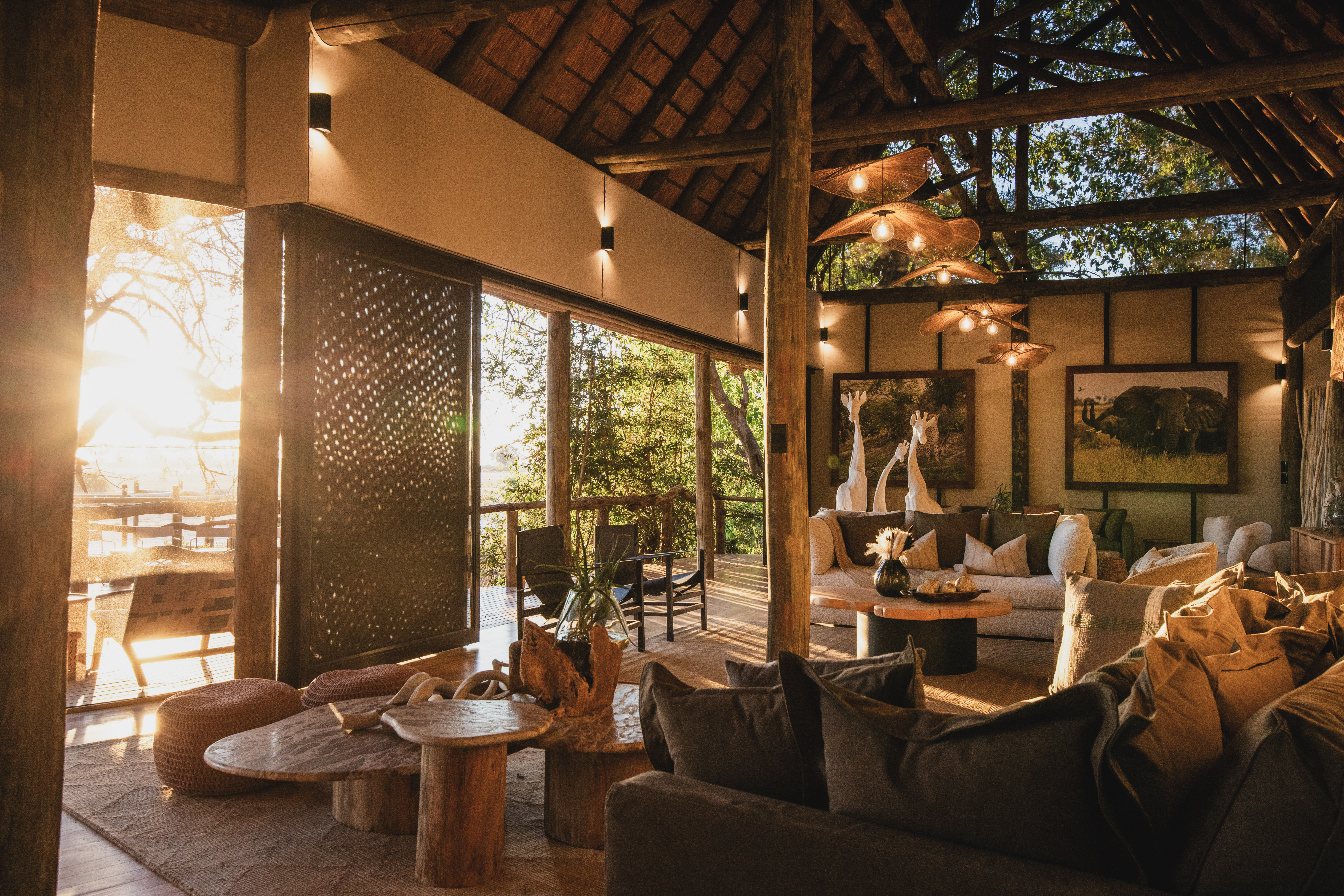
If you shut your eyes and imagined what a traditional safari lodge should look like, it would be here. We were the only guests (to 36 staff), as the water levels were too low for some of its famed pastimes, such as a safari from a mokoro, the Okavango’s famous dug-out canoe. No matter.
If Mokete was Black Sabbath at Glastonbury, Tubu Tree was Mozart at Glyndebourne. Still dramatic, but less intense and with better food. Most importantly, it was an example of the dazzling variations that the Okavango Delta and Botswana have to offer. Each of the three camps we visited was different in look, feel and experience, but together the trio made for a complete African experience.
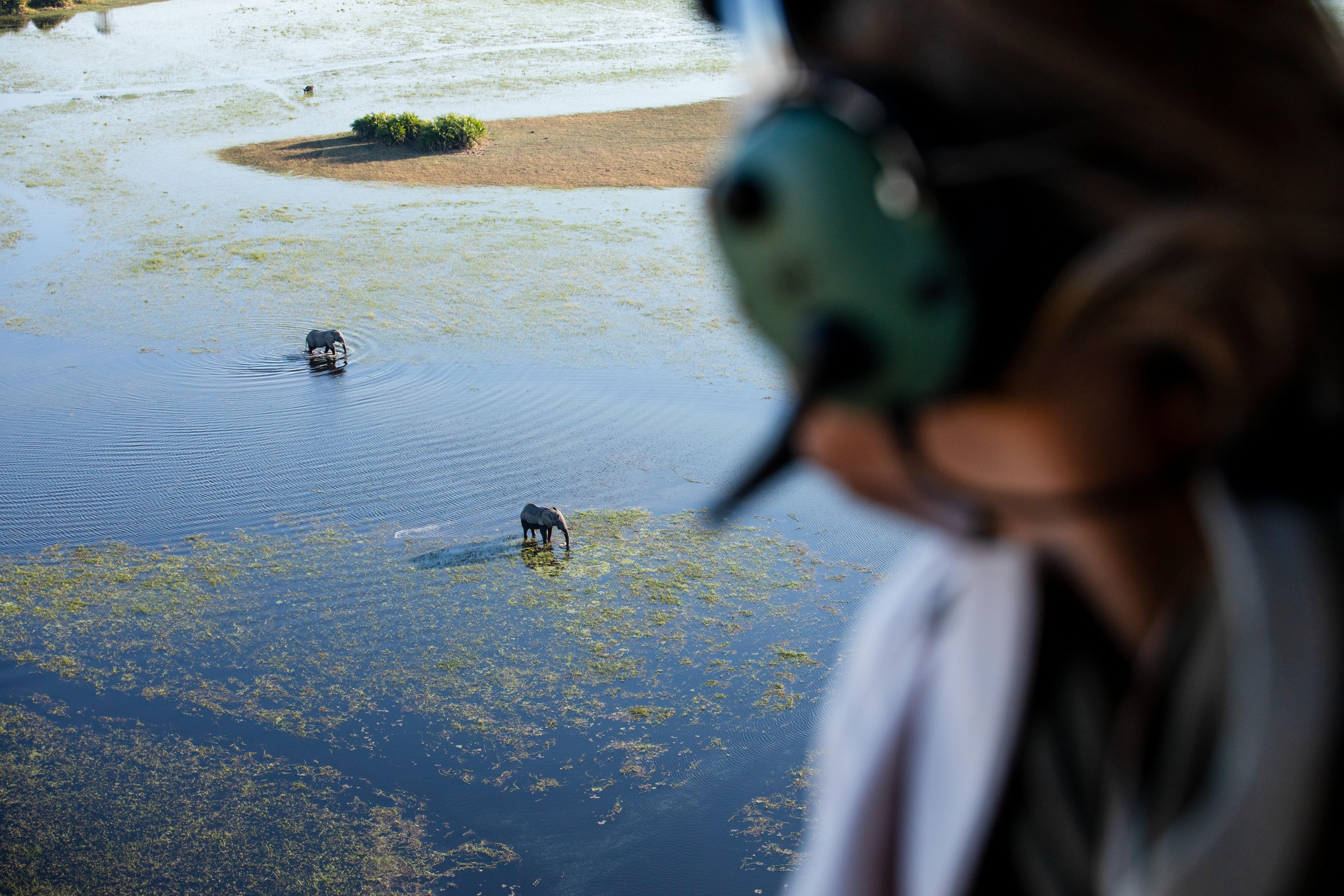
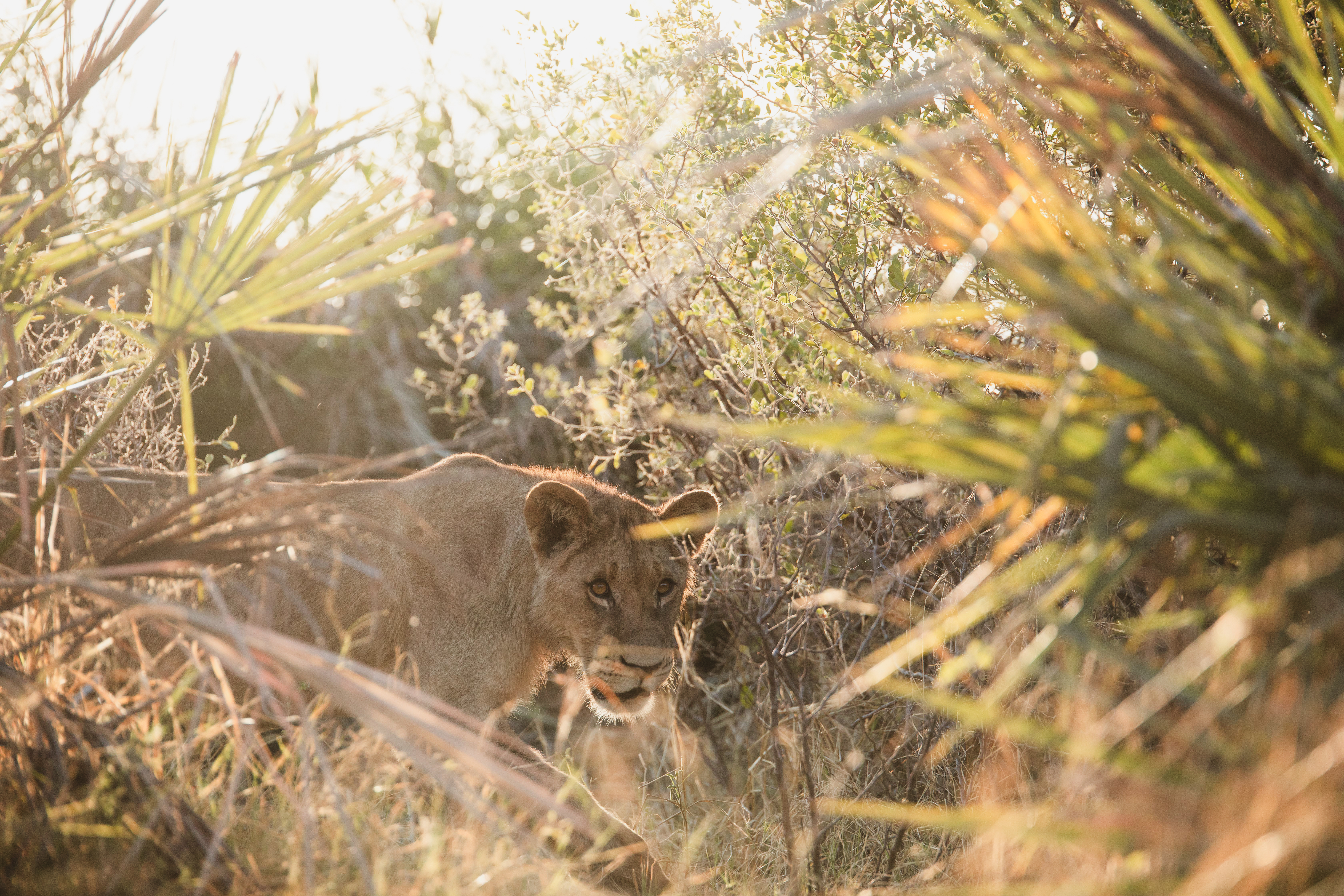
Where the water remained, the bird life was extraordinary: pied kingfishers, stilts, pelicans, crested terns, spoonbills, saddle-backed storks, wattled cranes and ibis snuck around the water as crocodiles basked and hippos argued. Cattle egrets stalked the buffalo, as ostriches mingled with the impala. We lived our life to the rhythm of the animals, going out before dawn, returning at dusk, dozing in between. Lunches in camp looked out across a dry river bed as sun birds and barbets fed on the flowers of the sausage tree that draped across the deck. We shared our new home with bushbucks and honey badgers, the most fearless of all animals. On safari, we came across a 12ft black mamba, which terrified our guide, and a leopard and her cubs hiding up another sausage tree.
In summary
With a perfect African bar at the centre of the camp, the lodges are connected by a raised walkway. The staff were charming and we discussed the politics of the nation from diamonds—a 2,492-carat rough gem was discovered in August last year—to the free schooling and healthcare of this fascinating and successful country.
Star rating
Classic comfort — and Rachel’s favourite.
From $1,480 (about £1,144) per person, per night
Duma Tau Camp
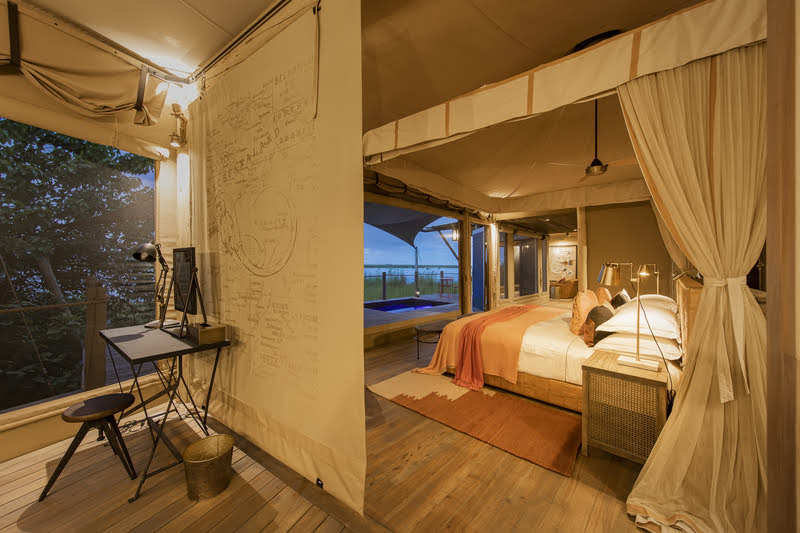
If César Ritz had made a tented safari lodge it would be something like this. Set above a wide lagoon, it sits tucked under the Mopane woodlands criss-crossed by hundreds of ancient elephant paths. Built of wood and canvas, it is luxury in a mind-enhancing way — in the middle of nowhere. That’s nowhere if you are a human; if you are an elephant, a fish eagle or a hungry crocodile, it is one of the greatest spots on the planet.
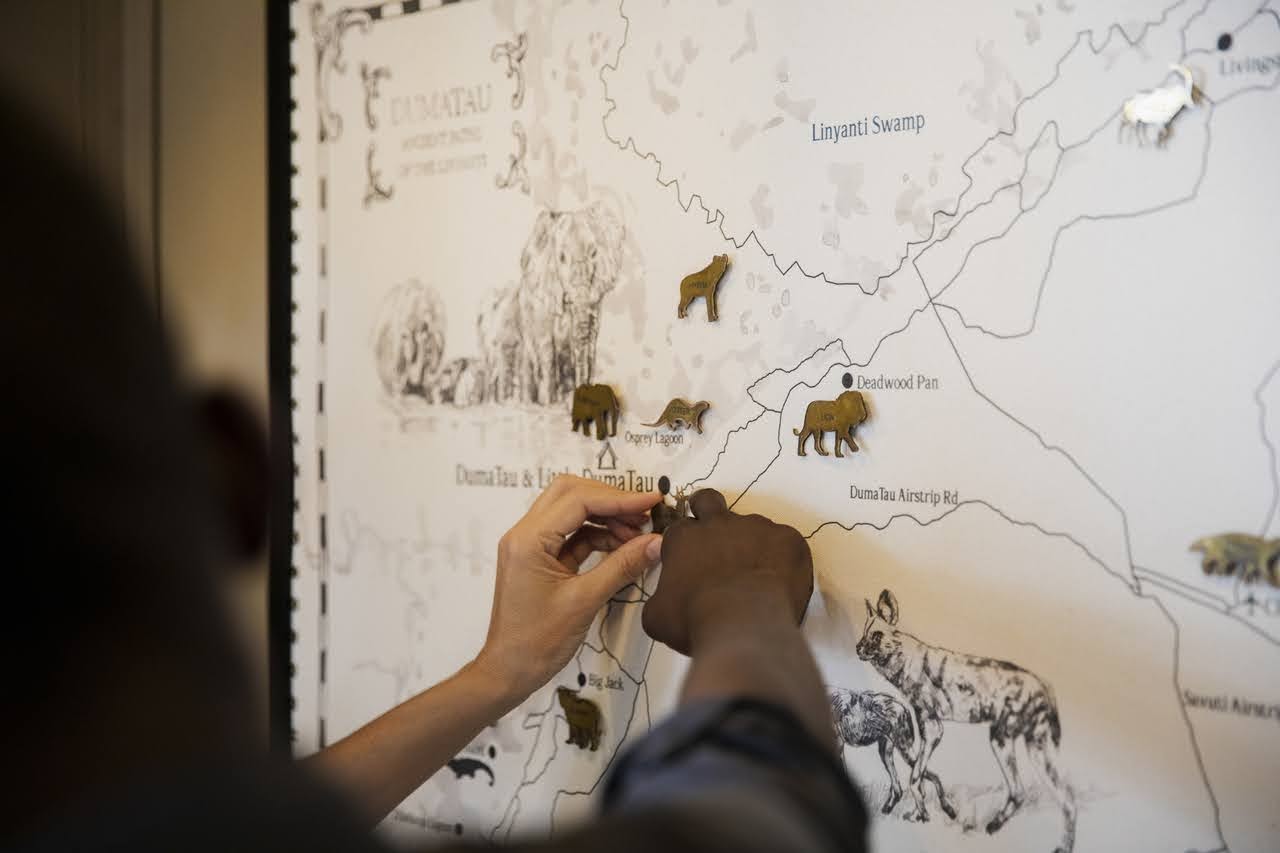
This was my 14th African safari, but nothing prepared me for our private boat trip on the lagoon. We ate like royals, watching the abundant bird life from the catamaran. A pair of swallows, who had made their nest under the hull, happily dashed hither and thither as a herd of elephants wandered down to the water and swam across the wide lagoon. As they crossed, the water became steadily deeper until the babies only had the tips of their trunks above the waterline. It was tear-jerkingly magical. During the performance, we munched on skewers of the famed Botswanan beef and endless plates of salads and puddings as more than 100 elephants swam closely past us, touching each other for reassurance so the huge crocodiles could not grab a youngster. In the evening, many more swam back to spend the night in the mopane forest.
We watched Senior, the area’s mighty male leopard, guard his kill, the brutal defence of a female hippo trying to protect the life of her young calf from the dominant male and many lions dozing. On our final evening, we had sundowners as a huge male lion roared in Namibia, just across a narrow channel from Botswana; afterwards, a full moon rose above the tree line. At midnight, I heard a splash and got up to watch a great herd of elephants swim back from the marsh in the bright moonlight.
In summary
The sound of the fish eagles, ‘the cry of Africa’, together with the extraordinary crossings of the pachyderms is an unmatched experience. Add the camp’s luxury, food and spa and you have one of the finest holiday destinations in southern Africa.
Star rating
Jumbo luxury.
From $1,750 (about £1,350) per person, per night
Mark grew up in the Cotswolds and began his career as a gold prospector. He became editor-in-chief of Country Life in 2006, having previously been in charge of more than 50 magazines, including Horse & Hound. He attributes his success to David Bowie and fly-fishing.
